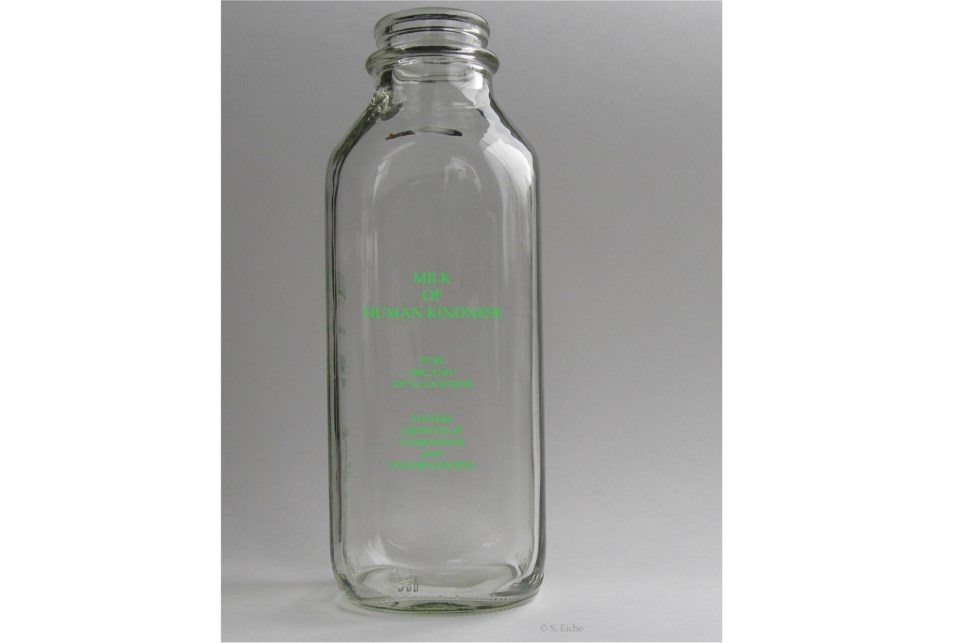The first person mentioned as having imbibed the milk of human kindness was Shakespeare’s Macbeth. According to Lady Macbeth, he was “too full o’ th’ milk of human kindness” to murder Duncan (Act I, Scene 5), although by the end of Act II, Scene 1, she has managed to manipulate her husband to carry out the violent deed.
In our own time, more people are feeding on violence, revenge, cruelty and greed than on the milk of human kindness. This tells me that we’ve forgotten what it means to be human. The word kindness is formed by adding the suffix –ness (denoting state, condition or quality) to kind. The word kind comes from the Old English “gecynd,” which is related to the Old English for kin, in other words family. A synonym for kind is generous, which also has a source linked to family and race – the Latin “genus.”
The association of the word kind with family, with our selves, suggests that we should behave towards others the way we want them to behave towards us. Yet right now, the actions of people, at all levels, seem to be the extreme opposite of kind. I’m not talking only about the wars raging around the world (many of us feel particularly affected by the war in Ukraine, which started in late February), but also the violence being committed practically on our doorstep, whether it’s across the border in the US, out in our eastern provinces, or right here in Richmond.
Back in January, a relatively quiet Richmond neighbourhood was shaken by a traumatic incident involving the killing of four members of the same family. In April, a 14-year-old female student at a local high school was assaulted, inside the school, by a 17-year-old male student. She ended up in the hospital. Last Monday, in Toronto, three teenage boys, two aged 15 and one 17, were arrested for having used a pellet gun to shoot two students at two different high schools.
The tragedy that unfolded on May 24 in Uvalde, Texas, where 19 students and two teachers were murdered and 17 other people wounded, is in a completely different category. Ten days earlier, a racist attack at a supermarket in a Black neighbourhood of Buffalo caused 10 people to lose their lives. Over the three days of the Memorial Day weekend alone, 12 mass shootings occurred across the US. It’s all incomprehensible.
Violence, revenge, cruelty and greed are, of course, not simply the opposite of kind, they are far, far worse. What will be the effect of the upsurge of such negative behavior in the long run, especially among younger people? When thinking about this problem I was reminded of something I read a while ago, regarding Charles Darwin’s theory about the survival of the fittest. It was in the fifth edition of his “Origin of the Species” that Darwin proposed the phrase “survival of the fittest” as a substitute for “natural selection,” but with the term fittest he wasn’t referring to strength. He was referring to kindness and cooperation in the natural world, because these were the qualities that would allow any and all species to flourish and to reproduce – whether it’s humans cooperating among themselves, or plants cooperating with insects to ensure that they’re pollinated while insects are fed.
If only we could distribute bottles of the milk of human kindness to all those members of the human race who think that destruction will get them what they want. It isn’t conflict that’s the key to survival, it’s cooperation.
Sabine Eiche is a local writer and art historian with a PhD from Princeton University. She is passionately involved in preserving the environment and protecting nature. Her columns deal with a broad range of topics and often include the history (etymology) of words in order to shed extra light on the subject.



